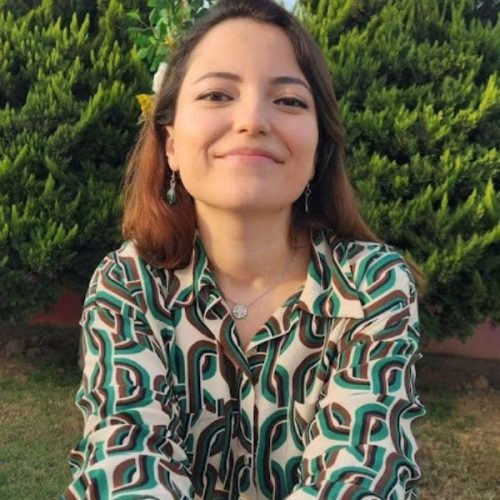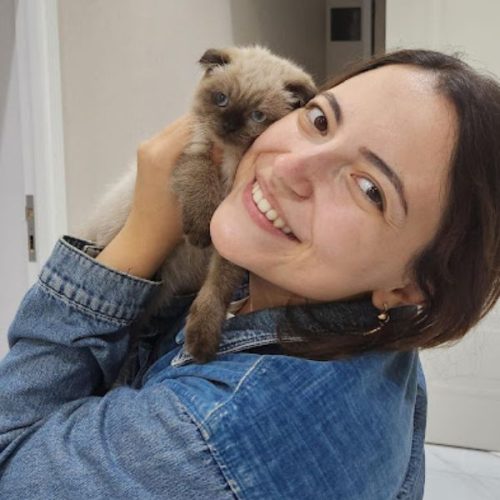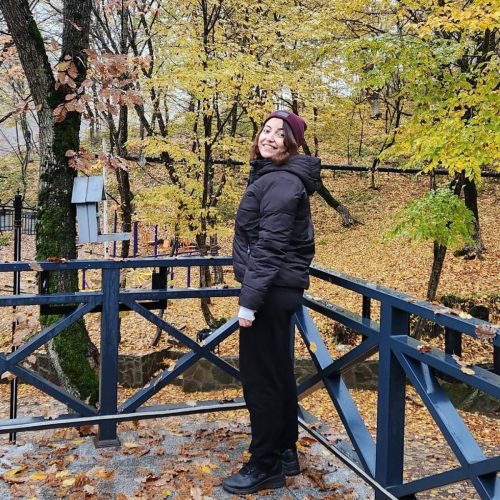Articles
What we’re contemplating, doing, and reading.
From Shattered Plans to a Compassionate Life: My Journey as a CCT™ Teacher in Azerbaijan
My journey into compassion began amidst a period of turmoil and emotional upheaval.

Originally from Azerbaijan, I was living in Türkiye in 2019, diligently pursuing my studies and preparing to embark on a Ph.D. program in the USA. With my Graduate Record Examination and Test of English as a Foreign Language scores in hand, my application essays completed, and a clear vision for my academic future, everything seemed to be perfectly aligned.
Then, life took an unexpected turn. One phone call changed everything; my mother was diagnosed with breast cancer. My carefully laid plans unraveled in an instant. I packed my bags, prepared to return to Azerbaijan, and grappled with overwhelming emotions — fear, disappointment, and uncertainty about the future. Before leaving Türkiye, my sister-in-law mentioned a seminar happening in Istanbul. Though I was consumed by grief, I decided to attend. I walked into the seminar crying, carrying the weight of my shattered plans.
What happened next changed my life. The moderator held space for my emotions with such compassion and presence that I felt truly seen for the first time. I remember writing in my diary afterward: “Nothing has changed. My Ph.D. plans are still canceled, and my family is still navigating a crisis. But why do I feel so light and calm?” That was my first true encounter with compassion.

Becoming the First Certified CCT™ Teacher in Azerbaijan
Upon returning to my home country, I signed up for an online Compassion Cultivation Training© (CCT™) course and it marked the beginning of a journey that has shaped my life and work in profound ways. Compassion was like sunlight breaking through the clouds of my major depression — softening the harsh, self-critical voice that had been with me for years. While that voice hasn’t disappeared entirely, compassion has taught me to listen for the need behind those judgments.
One compassion practice that has been transformative for me is visualizing someone, perhaps in Japan or Canada or Australia, experiencing the same struggle. This connection to our shared humanity dissolves the sense of isolation and fosters a deep sense of empathy — for others and for myself.
For me, compassion is also about reconnecting with my younger self. I often think of my 5-year-old self and ask, “How would I treat ‘her’?” That question reminds me to approach myself with gentleness and care. Additionally, compassion helps me recognize my efforts. I recall a time when I was stressed about a work deadline, my heart racing and stomach in knots. Suddenly, a voice inside me said, “Look how much you care. Look at how hard you’re trying. I’m so proud of you.” Those words immediately helped me soften and move forward with a sense of calm.
Seeing the transformative power of compassion in my own life inspired me to teach compassion to others. I felt deeply privileged when I was accepted into the 2023 cohort of the Compassion Institute’s CCT™ Teacher Training program, offered online. This accessibility made it possible for me to take the next step in sharing compassion with my community and beyond.

Cultural Context of Compassion in Azerbaijan
Compassion is often misunderstood in Azerbaijan, a small nation bordered by Türkiye, Russia, Georgia, Iran and Armenia. Many equate it with weakness, naivety, or being overly emotional. This perception, I believe, stems from the Soviet era, when my parents’ generation had little time to process emotions or practice self-compassion. Their parenting style often emphasized “work hard, earn money, and achieve social status,” leaving little room for emotional awareness.
As a CCT™ teacher, I’ve had to address these cultural misconceptions head-on. I frequently create social media content that challenges these stereotypes, offering examples of compassion as a source of strength, resilience, and courage. I share stories from work, family, and daily life to help participants see that compassion is not foreign to our culture — it’s deeply human.
When I started teaching CCT™ in Azerbaijan, my biggest challenge wasn’t the material, it was the promotion of the program. The wellness market in Azerbaijan has exploded with yoga, meditation, and coaching, but not all practitioners are qualified. Unrealistic promises like “solve your trauma in one session” have become widespread, creating skepticism. In contrast, CCT™ invites participants on an 8-week journey, emphasizing that compassion is a lifelong practice. This slower, more deliberate approach doesn’t always attract large numbers, but I’ve learned to prioritize quality over quantity. Even if one person is truly interested, I pour my heart into sharing compassion.
I recently completed my CCT™ Teacher Training practicum, and the experience made me feel like a newborn in the teaching world. I can’t be more grateful for all the effort and kindness of the Compassion Institute team. I truly felt seen and heard throughout the process. One moment that stood out to me was the feedback from my mentor — not just her words but the way she delivered it, with such compassion and care. It taught me how powerful compassionate feedback can be and reminded me to embody that same presence in my own teaching.
To help CCT™ resonate with local audiences, I incorporate everyday examples from home, work, and school. I also highlight how our culture’s emphasis on family and community can enrich compassion practices. By grounding the teachings in familiar experiences, I help participants see compassion as something they can embrace in their daily lives. The practice of recognizing shared humanity has been the most transformative tool for me personally. It reminds me that I’m not alone in my struggles and helps me approach difficult moments with a sense of connection rather than isolation. Participants in my classes often find this practice deeply resonant.
To encourage students to continue practicing compassion after the course, I emphasize that it’s like a muscle — it grows stronger with consistent use. I provide simple practices, such as taking a mindful breath or acknowledging their efforts, that they can easily integrate into their routines. I dream of a future where compassion becomes a core value in Azerbaijan, woven into our culture and communities.
I also aspire to work in an organization where compassion is not just a practice but a guiding principle, and where its mission actively involves spreading compassion on a larger scale. Beyond my home country, I hope to expand my teaching internationally, connecting with diverse groups and learning from their unique experiences. Each new group offers an opportunity to deepen my understanding and share the transformative power of compassion.

A Transformative Journey
Compassion has transformed my life in ways I never imagined. It has given me the courage to make mistakes, take risks, and trust myself. In my role as a project manager at the Institute of Education in Azerbaijan, I make high-stakes decisions daily. I don’t think I could do this with confidence if I didn’t know that compassion would catch me when I fall.
To anyone starting their compassion journey, my advice is simple: find a community, even if it’s just one like-minded friend. They will be your refuge when things get tough. And if you ever feel like the “ugly duckling,” remember there are many “swans” out there waiting to welcome you. Rest, drink your tea, and begin again.
Click here to read more compassion blogs and stories.
Click here to learn about giving opportunities for new CCT Teachers around the world.

